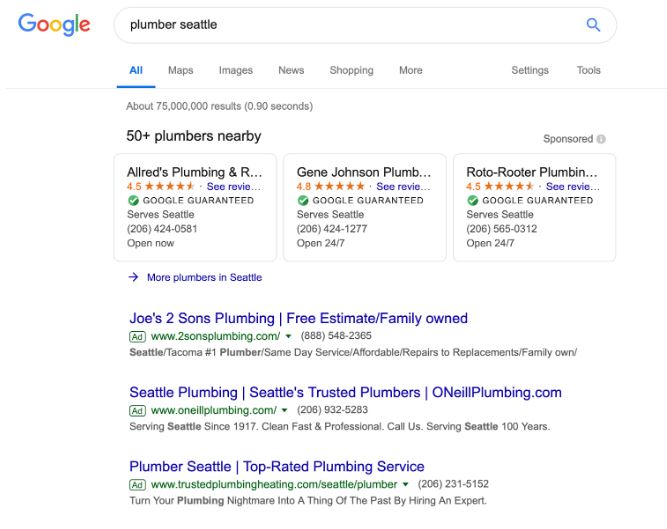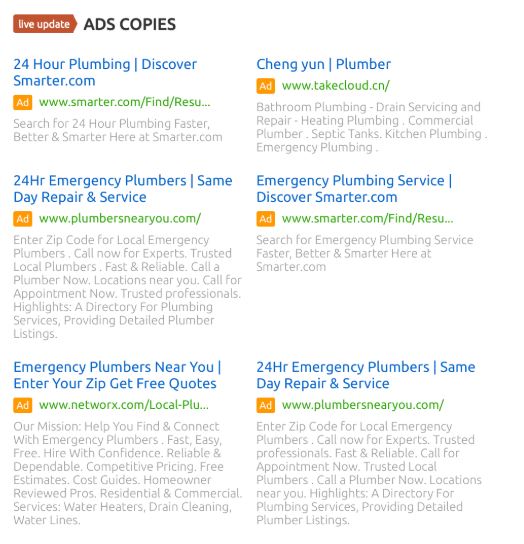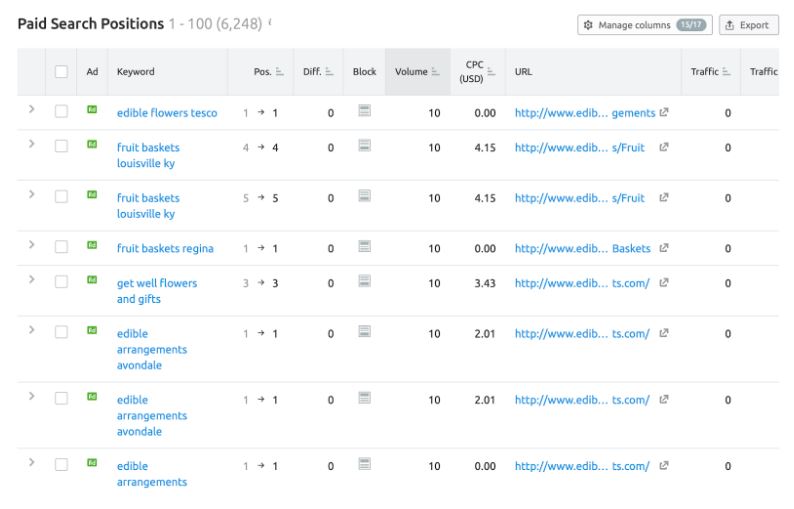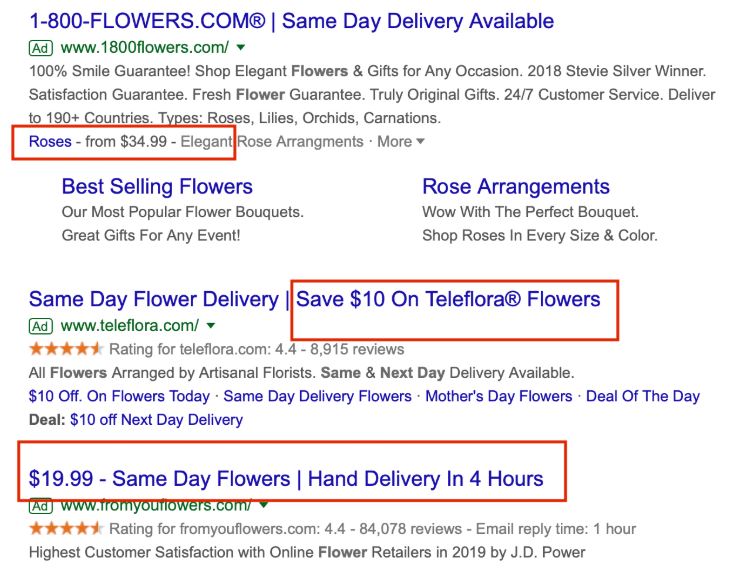Is there anything more frustrating then wasting money by showing your ads to the wrong audience, and having them click on them?

Choosing the best PPC keywords will help you reach the right audience who has the exact level of intent you need to help drive conversions.
This sounds straightforward, but in a lot of cases there’s some trial and error involved. You might find that it’s more difficult to rank for some keywords than others, or that some you expected to do well aren’t so much of a success.
Sometimes, you can skip a few steps in that trial and error process when you take a peek at keyword lists that are already being used by your competition, snagging some of those clicks and conversions away from them. In this post, we’re going to take a look at how to steal your competition’s PPC keywords and leverage them for yourself.
Start with the Right Tools
There are plenty of tools that you can use for basic keyword research, but if you want to dig deep in competitor research, it’s essential to choose those that have special features that give you insight not into just basic keyword data but info about who is using which ones.
I’ve used each of the following tools and can recommend each one personally:
In this post, we’ll be using SEMrush for our research.
Identify Your Competitors
Before you actually start researching, it will be a good call to take a look at which competitors you want to dig deep on. This will help you focus, so you’re able to do strategic research without bouncing from brand to brand.
There are two ways you can identify your top competitors, and I recommend using them both so you can dig deep without any blind spots in your research.
First, make a list of the brands who offer similar services or products and are targeting a similar audience in terms of interest, intent, and needed. They don’t even have to be in your local niche, if that’s relevant; a self-employed plumber in Detroit can do research on an established, top-ranking plumbing brand in the South East. You can use some quick Googling to find these competitors, even clicking on PPC results (if they’re doing everything right, after all, they’ll show up in search), or great your own list based on competition you already know about.

The second step will be to search for a few keywords that have either worked well for you, or that you believe would benefit you. See who pops up. You can do this organically, but I recommend using SEMrush to see the top competitors for each keyword. These may be competitors who have similar strategies, and it can help you find new brands who weren’t on your radar before but who are killing it with their PPC game.

Make a full list of these competitors, and add both large brands (like Nike) and small ones (that local family-owned shoe store) in the mix for a big-picture view of what’s possible, but know that larger brands may have bigger budgets and bids.
Look For Your Competition’s Most High Performing Keywords
You’ve got your list. Now it’s time to put it to work.
Search for each competitor individually on the keyword tool of your choice. This will typically pull up a list of the organic and PPC keywords they’re targeting. On SEMrush, you can sort this list by their position (whether they’re ranking first, fourth, or tenth, etc.), the keyword’s difficult, it’s volume, and its CPC.
Looking at a new search for edible arrangements:

This will give you valuable information, telling you what your competitors are bidding on, how they’re ranking, and what they’re paying to do so.
You can use this information in the following ways:
- Find high-volume keywords that you hadn’t considered but that fit your brand, ads, and landing pages.
- Discover branded keywords (like “edible arrangements” instead of just “fruit basket”) with low cost but high clicks that you can use to steal away some of your competitors’ high-intent traffic away from them (especially if you have an offer attached to your ad).
- Increase the likelihood that you’re bidding enough on high-value keywords to potentially outrank your competition for those in-demand phrases.
There’s also a chance that at this stage, you’ll discover that some keywords you thought would be a surefire success might not be such a good fit.
Maybe, for example, you notice that all of your top competitors are bidding $10 per click for a certain term. That could indicate that it’s a high-value term, but if you can only afford to drop $5 per click and you have so many top competitors bidding on it, you may know to focus on additional terms, too.
As you do your research, flag keywords that you’d like to try. I like to do this manually instead of adding them to a list on a tool, and I’ll write down the keyword, who is using it, sometimes how they’re using it and what their ad strategy looks like, and what I might want to bid.
Test Them
It’s incredibly important to acknowledge that just because certain keywords work for your competition doesn’t mean that they’ll be an instant success for you. You may find that your ads struggle to get clicks, or if that if they do, they have lower-than-average conversion rates for you.
Testing is going to be key, just like everything else with PPC campaigns. Keep a close eye on the new keywords and see how they perform over a two week period.
Try to create campaigns that are specifically designed to one-up your competition on their best keywords; try making better bids, upping the ad spend if you can and making sure that your ad strategies are competitive. If they’re offering $10 off, try to offer $15 if it financially makes sense.
Here are some paid search examples for flowers:

You can also use features like ad extensions to offer more necessarily information to your ad campaigns and help them stand out. You can add multiple extensions to each ad. While the right ad extensions will vary from campaign to campaign, good options typically may include promotion extensions, sitelink extensions, and structured snippet extensions.
Conclusion
While you’re testing the keywords you’ve found, you may notice that some may not work as well for you as you’d hoped. This is normal, and as long as your ad campaigns are strong, it’s best to ditch them and move on to others. It only makes sense, after all, to be using keywords that actually benefit you; if not, let your competition sink their own ship without dragging you down, too.
Need some extra help beating out your competition at their best PPC keywords?
Get in touch with us and learn more about how we can help.
About The Author
Dave Burnett
I help people make more money online.
Over the years I’ve had lots of fun working with thousands of brands and helping them distribute millions of promotional products and implement multinational rewards and incentive programs.
Now I’m helping great marketers turn their products and services into sustainable online businesses.
How can I help you?






